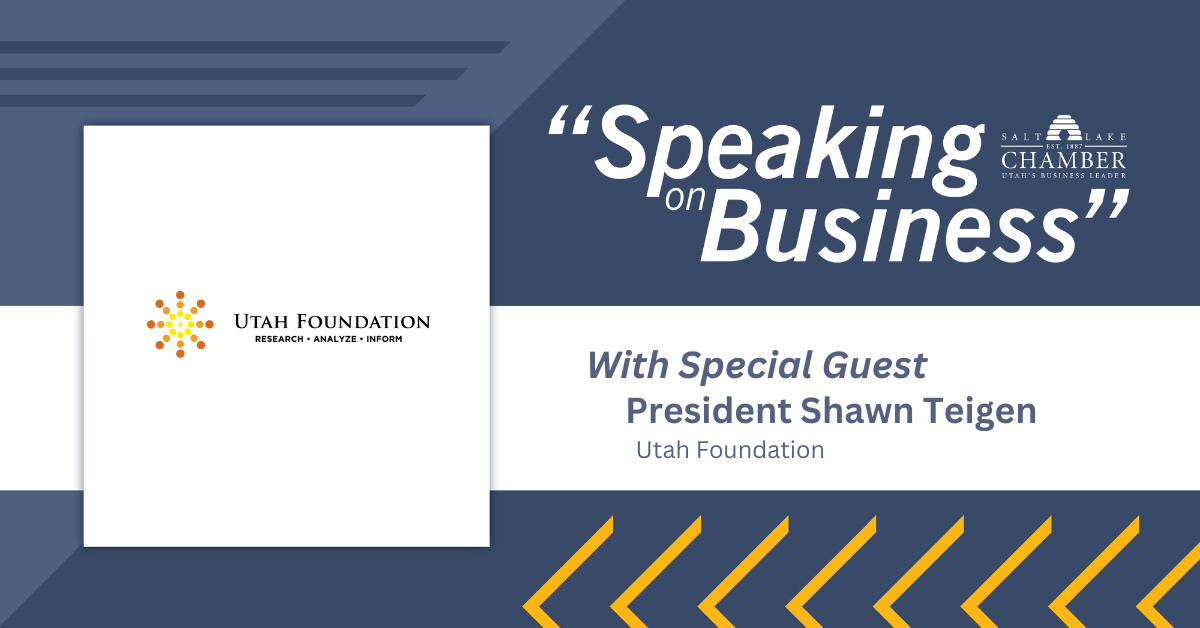Connections and relationships have shifted the past few years. It’s become more apparent how human interactions and relationships are more important than ever in this ever-changing uncertain world, specifically coming out of a pandemic. Some people need less and some need more human interaction, but we all need it. Building and having intentional workplace interactions I believe helps people feel a sense of belonging, have better performance, and be more engaged. This human connection and belonging are something we crave at work and in the community.
Here are four tips on how to establish deeper connections and interactions at work.
1. Make time
After I graduated with my undergrad, I then completed an internship in Washington, D.C. During my internship I applied and was offered a position at Salt Lake Community College (SLCC). Before I accepted the position, I flew to Salt Lake City to get a feel for the area and work environment. I was able to meet the late Joy Tlou, SLCC Public Relations Director. My boss was out of town but had me meet with him.
I ended up taking the position at SLCC and it was the best decision. Joy was my mentor and friend. Almost every day he would walk past my office and ask how I was doing, he took time. Joy was a busy person, and I appreciated the effort in active listening in helping me always be heard and understood.
It takes a conscious effort to make time for relationship-building, and at times people shy away from it. A suggestion is to schedule time on your calendar, block off a half-hour to chat, go for a walk or have lunch with colleagues. Another idea is to use a few minutes before meetings to connect with people, interact in conversations about the weather, movies, activities outside of work. These may be short interactions but will increase getting to know others personally over time.
2. Start small
Jane Goodall said, “What you do makes a difference, and you have to decide what kind of difference you want to make.” There are many people to meet, and it can feel overwhelming, but it’s important to take baby steps that will make a difference. Begin with getting to know one or two people. It’s appropriate to look for colleagues you have things in common with and those outside your department too. This will lead to more connectivity and support.
At the beginning of a recent meeting I led with more than 20 people. I asked one of my colleagues how cycling was going this summer. He was able to share his experiences of how there’s some road construction in some of the canyons and it’s a bit of a mess, but it’s been fun. This allowed for others on the call to chime in and share their thoughts and experiences on road construction in the canyons, which helped everyone to connect and get to know each other personally.
3. Ask questions and listen
People love to talk and share information about themselves. We do this all day long through email, text messages, in-person, phone calls, and all other forms of communication. Talking to each other helps us feel more connected.
Asking questions is something my parents taught me at a young age. I have been amazed at the connections and relationships built on asking questions. It may not come naturally to you, but practice asking things like: “What are you interested in outside of work? What is a current work project you are working on? Where is your favorite restaurant and why?” The list can go on and on, questions are unlimited. Make the conversation less about you and more about them.
Once you ask a question, remember to actively listen. This builds respect and trust in the relationship.
4. Be sincere and real
We are all human and going through a variety of experiences, it’s important to be sincere about the relationship and help others feel that they matter. Work is important, but the core of it is about relationships. Being sincere and vulnerable will increase an environment of openness and cultivate a deeper relationship of trust.
Relationships matter and cultivating them takes time and effort. The outcomes of relationships will ultimately aid in making your day more pleasant and make you better at your job.
About the Writer: Lori B. Williams, MBA
Lori Williams, MPA, is an associate director of marketing for University of Utah Health. For the past 16 years, she has worked in marketing and communications in the health care and education industries. She has created and led successful marketing and communications strategies and campaigns. These include the rebrand initiative for U of U Health, along with launching a new hospital Craig H. Neilsen Rehabilitation Hospital and Huntsman Mental Health Institute, Breast Assured, Vas Madness and Here for Every Body. Lori, a Cali girl, is a transplant to Utah; you can find her on the ski slopes in the winter and spending quality time with her husband and two lively sons, which are her pride and joy. She is fro-yo fanatic, adventure seeker and enjoys learning from others. Connect with her on Twitter: @lorib_williams.


